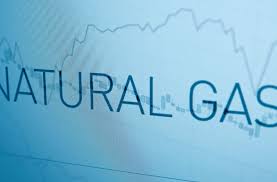
Amidst potential disruptions from United Arab Emirates ports refusing ships from the country, natural gas buyers could be spurred to seek greater diversification in sourcing due to Qatar’s diplomatic crisis with its Middle Eastern neighbors.
"Buyers will increasingly look to complement their contract-dominated import portfolio with more spot purchases, although these will be smaller in volume," said Peter Lee, BMI Research's oil and gas analyst.
Qatar has traditionally sold gas on long-term contracts spanning decades and it is the world's largest producer and exporter of liquefied natural gas (LNG). The major buyers of Qatari gas banded together in March to secure more flexible supply contracts and the band of large buyers include the countries of Japan, South Korea, and China.
Since prices in the commodities complex crashed following crude oil's 2014 slump, LNG buyers have already been increasing spot natural gas purchases.
Yet the market is currently calm despite concerns about disruptions to crucial supplies. Meanwhile, Qatari ships are not facing restrictions while they are passing through the key Suez Canal shipping route because it is an international water passageway, reports indicate.
Before moving onto Asia, the Strait of Hormuz between Oman and Iran is also being used by gas shipments to pass through between the continents despite earlier concerns.
However, the chance of logistical hitches is what buyers may actually be more concerned about now.
Trade media reports that potentially causing delays and adding to shipping cost with ships sent to find new destinations as far as Singapore for the task as the diplomatic rift has hit gas tankers stopping at the port of Fujairah, a fuel hub.
On Monday seven countries including Saudi Arabia the United Arab Emirates, Egypt and Bahrain severed diplomatic ties with the energy-rich monarchy Qatar and these events come after that. Qatar has been accused of backing Tehran and Islamist groups such as the Muslim Brotherhood. By saying that the diplomatic rift was based on "baseless fabricated claims" and has also said that it does not support terrorism.
BMI's Lee says that gas from the Middle Eastern country will remain a "prominent feature" — even amid new supplies from destinations like Australia and the U.S., while the diplomatic spat will likely rattle buyers dependent on the energy source who may be moving to diversifying their product mix amid greater competition.
With both U.S. and Brent crude prices hitting one-month lows on Wednesday due to a U.S. stock build, crude oil prices have come back off and now appear to be largely trading on fundamentals even as they had spiked on heightened geopolitical risk after the countries' announcements. While Brent was around $48 a barrel, both grades were up 0.5 percent with U.S. crude around $46 a barrel on Thursday morning in Asia.
There are 10,666 Qatari-owned vessels and 412 Qatari-flagged vessels, according to information provider, VesselsValue.
(Source:www.cnbc.com)
"Buyers will increasingly look to complement their contract-dominated import portfolio with more spot purchases, although these will be smaller in volume," said Peter Lee, BMI Research's oil and gas analyst.
Qatar has traditionally sold gas on long-term contracts spanning decades and it is the world's largest producer and exporter of liquefied natural gas (LNG). The major buyers of Qatari gas banded together in March to secure more flexible supply contracts and the band of large buyers include the countries of Japan, South Korea, and China.
Since prices in the commodities complex crashed following crude oil's 2014 slump, LNG buyers have already been increasing spot natural gas purchases.
Yet the market is currently calm despite concerns about disruptions to crucial supplies. Meanwhile, Qatari ships are not facing restrictions while they are passing through the key Suez Canal shipping route because it is an international water passageway, reports indicate.
Before moving onto Asia, the Strait of Hormuz between Oman and Iran is also being used by gas shipments to pass through between the continents despite earlier concerns.
However, the chance of logistical hitches is what buyers may actually be more concerned about now.
Trade media reports that potentially causing delays and adding to shipping cost with ships sent to find new destinations as far as Singapore for the task as the diplomatic rift has hit gas tankers stopping at the port of Fujairah, a fuel hub.
On Monday seven countries including Saudi Arabia the United Arab Emirates, Egypt and Bahrain severed diplomatic ties with the energy-rich monarchy Qatar and these events come after that. Qatar has been accused of backing Tehran and Islamist groups such as the Muslim Brotherhood. By saying that the diplomatic rift was based on "baseless fabricated claims" and has also said that it does not support terrorism.
BMI's Lee says that gas from the Middle Eastern country will remain a "prominent feature" — even amid new supplies from destinations like Australia and the U.S., while the diplomatic spat will likely rattle buyers dependent on the energy source who may be moving to diversifying their product mix amid greater competition.
With both U.S. and Brent crude prices hitting one-month lows on Wednesday due to a U.S. stock build, crude oil prices have come back off and now appear to be largely trading on fundamentals even as they had spiked on heightened geopolitical risk after the countries' announcements. While Brent was around $48 a barrel, both grades were up 0.5 percent with U.S. crude around $46 a barrel on Thursday morning in Asia.
There are 10,666 Qatari-owned vessels and 412 Qatari-flagged vessels, according to information provider, VesselsValue.
(Source:www.cnbc.com)





